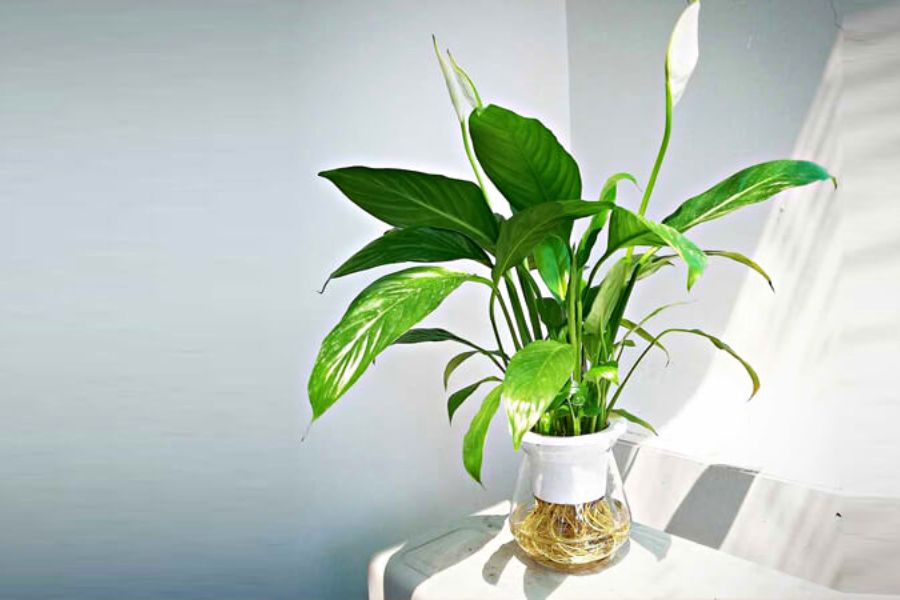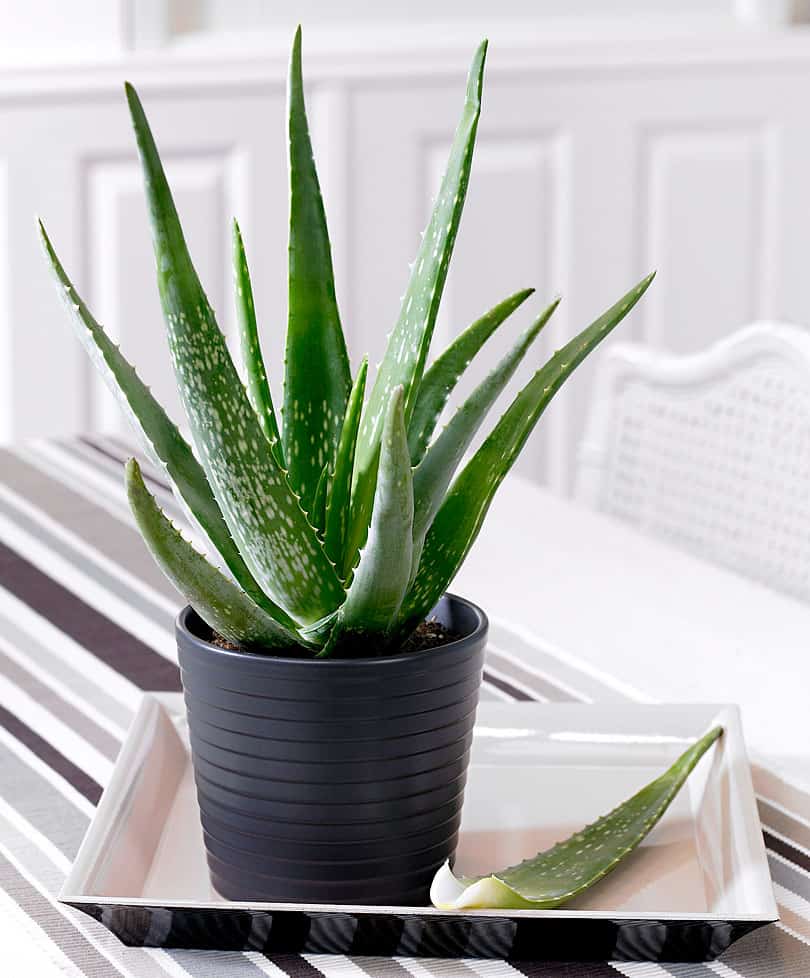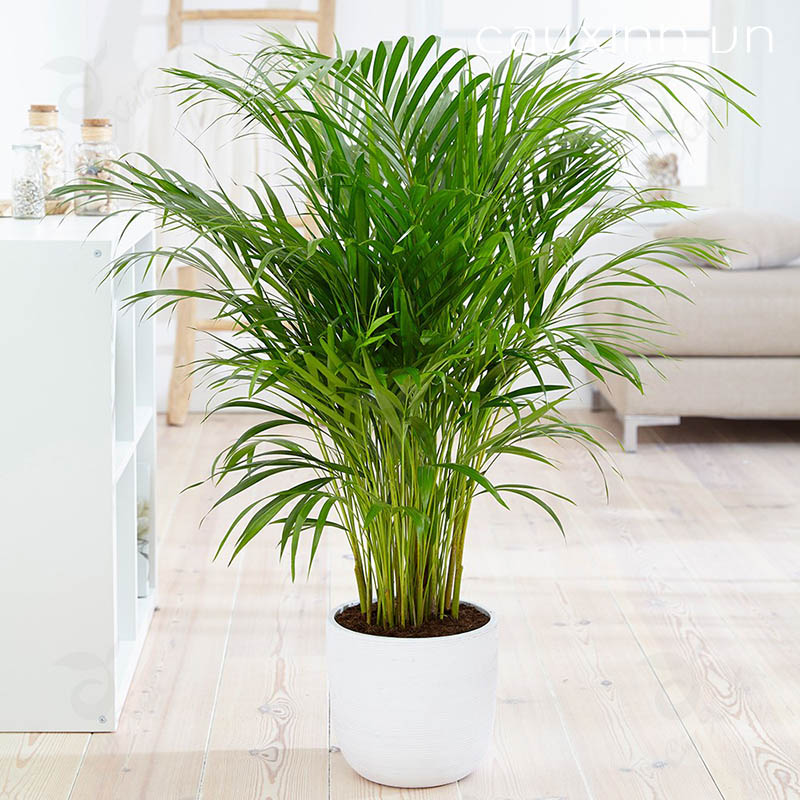Snake Plant
Certainly, this type of plant is very familiar to many people. Snake Plant is known for its ability to filter the air from harmful compounds such as formaldehyde, trichloroethylene, toluene, benzene, xylene. Not only that, Snake Plant also absorbs CO2 and releases oxygen at night, contrary to the normal respiration process of most plants. Thanks to this, it helps humans breathe easier when sleeping.
Peace Lily
Peace Lily can improve the indoor air quality by about 60% thanks to its ability to filter out many harmful substances such as xylene, trichloroethylene, formaldehyde from car engines, indoor paints; ammonia from electronic components, cigarette smoke. Besides, Peace Lily also helps reduce the level of mold spores in the air.

Madagascar Dragon Tree
This plant is also known as the Dragon Tree. This is a suitable ornamental plant to be placed in a sunny location with high humidity. The special feature of the Madagascar Dragon Tree is that it gives your indoor air a fresh and clean scent.
Aloe Vera
In addition to its health and beauty benefits, Aloe Vera also helps remove benzene, formaldehyde, and by-products of cleaning agents from the air in your home.

Ficus Bonsai
Ficus Bonsai originated from tropical forests, often found in areas of India and the Philippines.
This plant is good for oxygen production. If you have one or two large ficus bonsai plants indoors, it can increase the oxygen level in the living space.
Ficus Bonsai prefers moderately moist soil, prefers indirect light rather than direct light, so it is suitable for indoor placement.
Not only does it create high oxygen levels, but the ficus bonsai plant also filters the air, removing pollutants such as formaldehyde, toluene, benzene, xylene. This is beneficial for people with sinusitis, helping improve respiratory issues, providing a comfortable and relaxing environment for everyone in the living space.

Other tips to keep the indoor air fresh
– Natural ventilation: Open windows every day to keep the air in the house circulating.
– Keep the house clean: Cleaning the house is a way to reduce dust and prevent mold from appearing.
– Avoid using strong cleaning agents: Some chemicals in cleaning products can pollute the indoor air. Therefore, prioritize choosing natural products or environmentally friendly cleaning options.
– Choose environmentally friendly furniture materials: This is also a way to improve indoor air quality.
– Use essential oils and natural fragrances: This will help create a fresh and beneficial atmosphere for health.



































